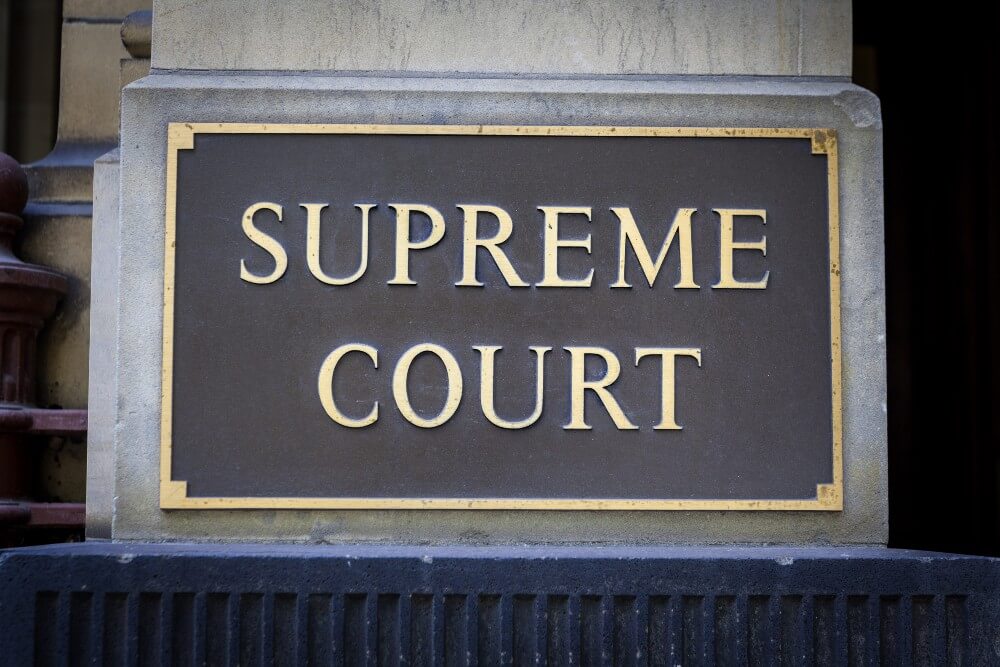Supreme Court Clarifies Service Charge Re-apportionment Rights for Landlords
Over recent years the courts have reached different conclusions as to the legal effect of a lease provision that allows a landlord or management company to vary the service charge proportions that tenants are required to pay, and whether this provision (in accordance with the Landlord and Tenant Act 1985) is void or valid.
Now, the Supreme Court has provided welcome clarification over how this provision should be interpreted. In a recent ruling, the Court finally determined that landlords do have the right exercise a lease clause permitting them to re-apportion service charges in residential leases.
This is fantastic news for landlords and management companies, making their legal position clear and reducing the risk of future legal disputes over this issue. However, it is important to note that the rule makes no change to the requirement for service charges to be “reasonable” and tenants can continue to challenge the reasonableness of service charges where appropriate.
Background to Aviva Ground Rent vs Williams
The recent Aviva Ground Rent vs Williams case will be of great interest to both landlords and management companies alike.
The case focused on the validity of a lease provision which gave the landlord the power to change the amount of the overall maintenance expenses that a leaseholder was required to pay as a service charge.
The case concerned long leases of residential flats under which leaseholders were obliged to pay service charges in respect of the expenses that the landlords incurred in maintaining the estate and the building.
According to each lease, the leaseholder was responsible for paying either a fixed percentage of those expenses or alternatively a different percentage that the landlords determined to be reasonable.
The landlords decided to exercise their right to replace the fixed percentages that the leases stated with ones that they deemed reasonable.
A group of the leaseholders challenged the percentage adjustment by taking legal action via the First-tier Tribunal. They primarily argued that the landlord’s ability to amend the charges was void under section 27(A) of the Landlord and Tenant Act 1985.
Under Section 27(A), disputes regarding service charges should be resolved via application to the First-tier Tribunal. The section also invalidates clauses that permit the landlord to determine service charge matters which require a Tribunal decision. The leaseholders’ reasoning was that if only the First-tier Tribunal can determine how much a leaseholder must pay by way of a service charge then the lease clause which permitted a landlord to determine just that must be void.
How the case came before the Supreme Court
The First-tier Tribunal found in favour of the landlords, accepting that they were entitled to re-apportion the service charges. However, the leaseholders then appealed to the Upper Tribunal, which found in their favour.
The case was then taken to the Court of Appeal, which determined that the lease provision permitting a re-apportionment was void, but only in that it referred to the landlord exercising that power. The Court decided that instead, it should be for the First-tier Tribunal to determine re-apportionment of service charges.
Perhaps unsurprisingly, the landlord was unhappy with this outcome. This set the stage for the case to be heard before the Supreme Court.
The Supreme Court’s landmark decision
The Supreme Court found that the landlord’s power to adjust the percentage of the service charge was valid. The reasoning was that every lease contains numerous provisions under which the landlord or management company may make decisions which affect the amount of service charge that a leaseholder must pay – for instance, whether to paint the windows this year or next year; whether to patch-repair the roof or replace it entirely; whether to mow the lawn weekly or fortnightly. The Court had no doubt that a landlord or management company is permitted by section 27(A) of the Landlord and Tenant Act 1985 to make those decisions. And if they could make those decisions that affect the service charge then the Court considered that consistency required that they must also be able to make decisions on the re-apportionment of the service charge. The Court concluded that the re-apportionments were therefore reasonable.
With this decision, the Supreme Court has established the validity of such lease provisions. The outcome is a favourable one for both management companies and landlords, and sets a firm precedent for similar cases in the future.
Get in touch with our property litigation solicitors
At Longmores, we have much experience supporting landlords, management companies and managing agents with both contentious and non-contentious matters.
Where clients are facing disputes with regard to residential service charges or other property litigation matters, we can provide able assistance using our expert knowledge of exactly what works and what your options are.
For more information, please get in touch with John Wagstaffe, Partner and Head of Property Litigation.
Please note the contents of this article are given for information only and must not be relied upon. Legal advice should always be sought in relation to specific circumstances.

